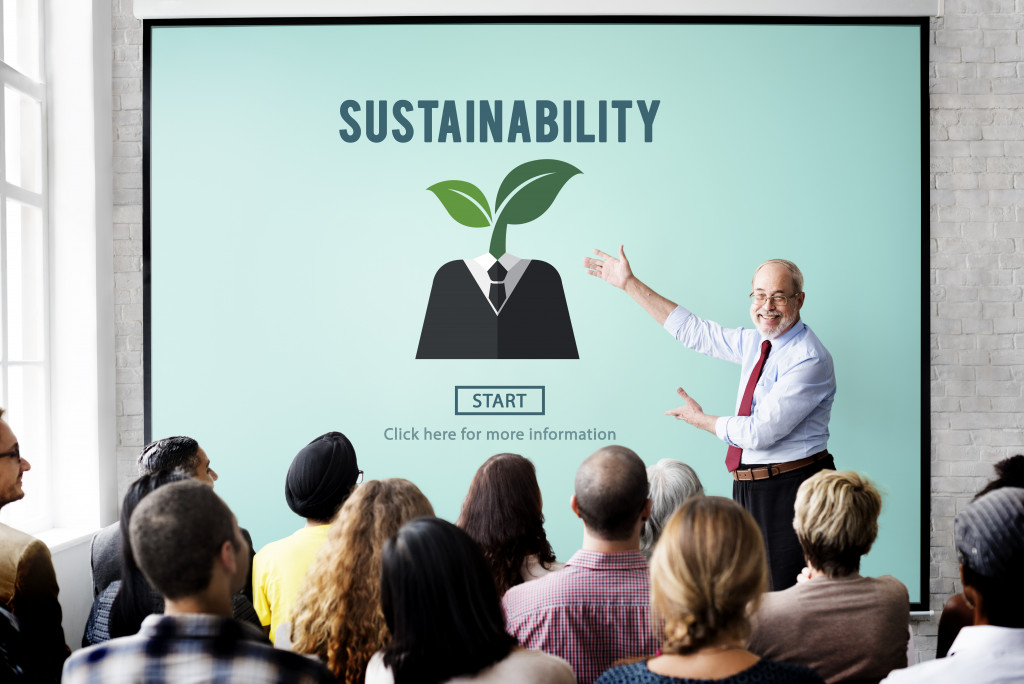The sustainability of business has been a revered topic by many startups and modern business owners for the past decade. Although previously ignored, the effects of climate change are slowly being recognized by people around the world. When pockets are involved, everybody else seems to be paying attention. With the overconsumption and significant wastage of the 20th century, people hope to step in a different direction in the 21st century. The meaning of sustainability has transformed.
Before, the meaning of sustainability was inwards — that sustainability meant that the business could efficiently rely and balance itself on its practices. Nowadays, sustainability meant that the company participates in the preservation of the world’s natural resources. Even business-to-business enterprises became heavily invested in the world’s race towards sustainability. It has shifted the majority of the policies in different governments around the world.
The practicability of being a sustainable business has even become a requirement for some business diligence. As part of loan requirements, your mortgage broker and your loaning bank may require evidence of sustainability for businesses before lending you specific loans. It is a common practice to place a premium or discount for companies that practice sustainability. Governments implement tax cuts to reduce the additional burden of shifting to sustainable processes brings.
What are the best practices of business owners who aim for sustainability?
Conservation of Resources
Conservation of raw materials and other resources is just one element of becoming a sustainable business. Making sure that you squeeze every ounce of what you take in will help your business reduce the number of waste materials it outputs. Every person needs natural resources to survive. Real-world materials are limited.

While the world is vast, we can only get too many particular objects. The Earth’s resources are finite. The trees cut down for the production of paper wouldn’t grow for a few years. The number of fossil fuels we burn to give energy to our factory will never be replenished. Keeping in mind our limitations is vital to realize how fragile our entire system is. It is broken, and it needs saving.
Betterment of Processes
To ensure that you save resources, the improvement of processes is essential. Efficiency will enable your enterprise to reduce the amount of energy it consumes, the raw resources it needs, and the waste it outputs. Improving your production line underpins the amount of profit and growth your business can garner. For example, a quicker production line allows the company to expand the various products it can produce. The improvement of processes also enables the business to identify test which steps are getting inefficient returns.
Involving Supply Chain
Involving your supply chain to become sustainable with you is key to getting the word out there. When a business adheres to the principle that it is sustainable, it should also make sure that all companies involved in its supply chain are also sustainable.
It makes no sense to still be supporting a business that is not sustainable when you, yourself, are already sustainable. Involving your supply chain in your business transformation is integral. Some people think that a business’s claim that it is sustainable is fraudulent in principle because it sources most of its materials from non-sustainable companies.
Recycling Waste Products

Having a recycling plan regarding what to do about the waste products of your business is vital to help reduce the amount of waste your company produces. The final product of your recycling process need not be used again by your business. One man’s trash may be another man’s treasure. Making a waste product usable again is already a significant contribution to the fight against climate change. It can also help you keep down costs by profiting off of what you recycle.
Product Waste
Lastly, ensuring that your product will entirely be usable and nothing will go to waste is vital to make sure your efforts do not go discarded. Product waste is a huge problem the world already faces. Unnecessary packaging materials are included in the sales of products daily. These materials turn into microplastics that pollute our oceans. Reducing the amount of unnecessary packing your product provides will send a direct message to your consumers that you aim to help in fighting climate change.
Every bit helps in the effort against climate change. While businesses are the most significant contributors to it, they are also the biggest catalyst for change. By folding to change and supporting the efforts towards sustainability, we are saving and taking our planet back little by little.

